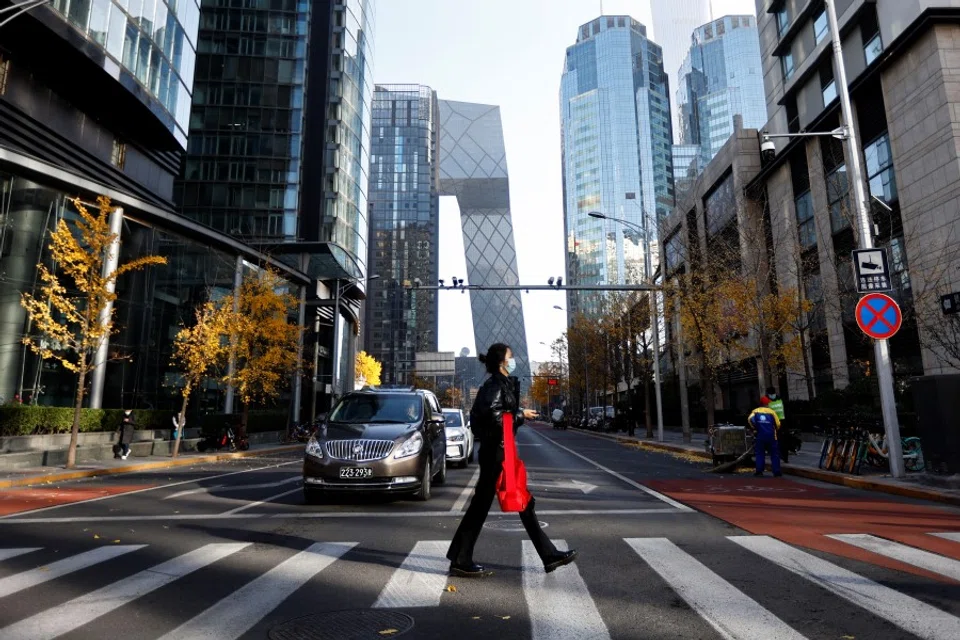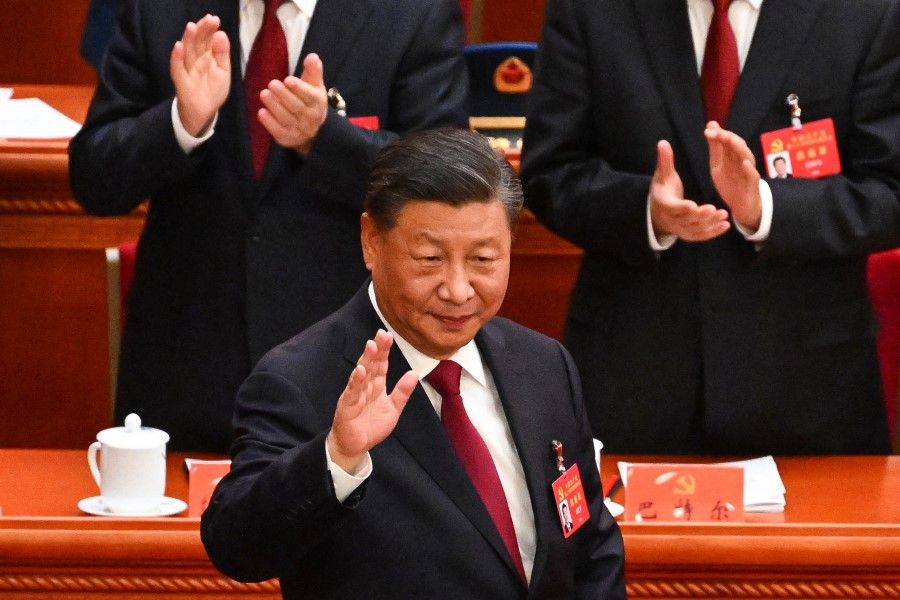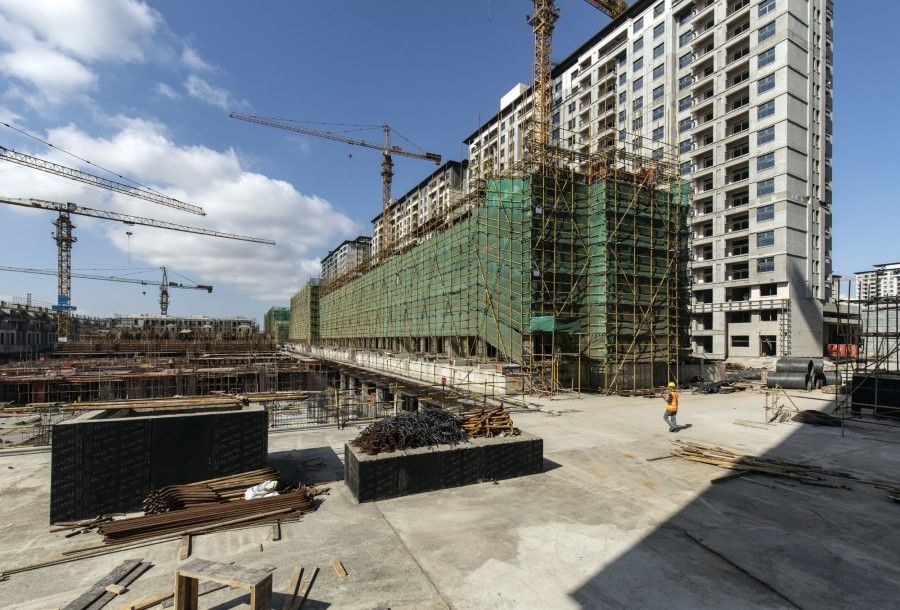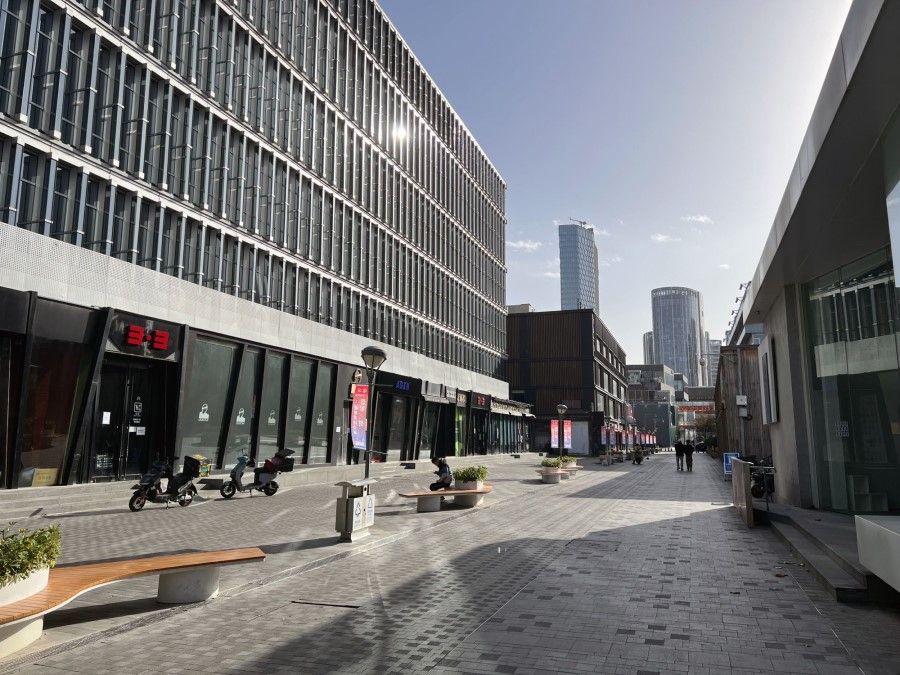Why the 20th Party Congress was not a 'decisive victory' for Xi

The Chinese Communist Party (CCP)'s 20th Party Congress opened in October with General Secretary Xi Jinping's customary report to the Party Congress. Xi's presentation of the report at the 19th National Congress five years ago lasted three and a half hours. This time, it took less than two hours.
The shorter time taken was because Xi read an abridged version of the report. Why did Xi do so?
Key lines in the report are as follows:
"We embraced the centenary of the Communist Party of China; we ushered in a new era of socialism with Chinese characteristics; and we eradicated absolute poverty and finished building a moderately prosperous society in all respects, thus completing the First Centenary Goal.
"...the central task of the Communist Party of China will be to lead the Chinese people of all ethnic groups in a concerted effort to realize the Second Centenary Goal of building China into a great modern socialist country in all respects and to advance the rejuvenation of the Chinese nation on all fronts through a Chinese path to modernization."
What I failed to realise five years ago was that the "two centenaries" was not merely a CCP manifesto, but a manifesto developed in preparation for Xi Jinping's long-term tenure.

The report echoes the "two centenaries" narrative set out at the 19th National Congress five years ago. Xi was re-elected general secretary for a precedent-breaking further five-year term in order to advance this ambitious undertaking. What I failed to realise five years ago was that the "two centenaries" was not merely a CCP manifesto, but a manifesto developed in preparation for Xi Jinping's long-term tenure.
This time, the report includes additional content, namely, the "Long-Range Objectives through the Year 2035" set out in the 14th Five-Year Plan (March 2021). The goal of "Basically realizing social modernization" by 2035 was stated in the Report to the 19th National Congress, and underpinned the actual numerical target to"substantially grow the per capita GDP to be on par with that of a mid-level developed country" as set out in the 14th Five-Year Plan. The report delivered at the 20th Party Congress furthers that goal.
Evidently, Xi read out an abridged version of the report because it followed the texts of the Report to the 19th National Congress five years earlier and the 14th Five-Year Plan in 2021, so none of the material was new.
Continued exuberance
Following these two texts ensured that the mood of the time in which they were produced was carried over into this year's report. Observing "anomalies" such as Brexit in the UK and the election of Trump in the US in 2016, the large number of deaths from Covid-19 in the West, and the great turmoil in the US following the presidential election, an exultant mood pervaded China in anticipation of the "decline of the West and the new era of China".
However, the situation in China and around the globe changed drastically during the year-and-a-half following the publication of the 14th Five-Year Plan.
The exuberant tone of the report carried over from the past is at odds with the pall cast over the mood of optimism in China...

The Chinese economy has been hit by a real estate recession on an unprecedented scale. Real estate is said to account for a quarter of economic growth, but various year-on-year indicators have fallen by tens of percentage points. Up to now, investment in infrastructure by local governments has offset this decline. However, local government finances are also facing unprecedented financial difficulties. The zero-Covid policy has dealt a crippling blow to consumption and society and the end is nowhere in sight.
In other parts of the world, the wheels of globalisation are now being thrown into reverse by the US-China conflict and the coronavirus pandemic; world peace is being shaken as a result of Russia's invasion of Ukraine; and the global economy has been forced to hike interest rates in order to combat inflation. Under such circumstances, Chinese exports cannot be expected to grow.
The exuberant tone of the report carried over from the past is at odds with the pall cast over the mood of optimism in China by the drastic deterioration of the internal and external environment.
Advancing the New Era in a new era
The most evident indication that this exuberance is ill-founded is the fact that the numerical target of "substantially growing the per capita GDP to be on a par with that of a 'mid-level developed country'" has also been carried over. While there is no clear definition of what makes a "mid-level developed country", China's per capita GDP in 2021 was US$12,500. Consequently, it would need to grow at an average of between 4.5 and 5% over the next 14 years in order to reach the level of Czechoslovakia (US$26,400) or Portugal (US$24,300).
The question is whether these numerical targets can be said to be realistic at a time when the economy can no longer depend on investment, private enterprises are losing steam, and rapid demographic change is occurring.

The question is whether these numerical targets can be said to be realistic at a time when the economy can no longer depend on investment, private enterprises are losing steam, and rapid demographic change is occurring. If the target was lowered to the level of Greece (US$20,300) or Hungary (US$18,800), the growth rate needed to reach it would drop to the level between 3 and 3.5%. However, China would probably not allow itself to set a target at the level of its "Belt and Road" recipients.
The question is whether this is the pool of wisdom that China needs to weather the challenges that lay ahead.
Besides, downgrading the targets stipulated in the "two centenaries" manifesto developed in preparation for Xi's re-election could have an impact on the third term. Consequently, there was no discussion at the 20th Party Congress around the content of the report. Rather, the focus was solely on personnel matters.
The majority of the Politburo Standing Committee members are Xi's proteges and confidants. The question is whether this is the pool of wisdom that China needs to weather the challenges that lay ahead.
The 20th Party Congress may have been hailed as a "decisive victory for Xi" but my sense is that Xi's third term will be far more challenging than his second.
Related: Chinese netizens debate: Should China abandon the market economy for a 'people-oriented' economy? | China needs to rethink its regulations and governance of the platform economy | Ten years of political intervention: China's economy at a crossroads | China to prioritise economic stability ahead of CCP 20th Party Congress | Xi Jinping's position as 'the people's leader' firm ahead of 20th Party Congress | Beijing faces a huge deficit of trust after 20th Party Congress
